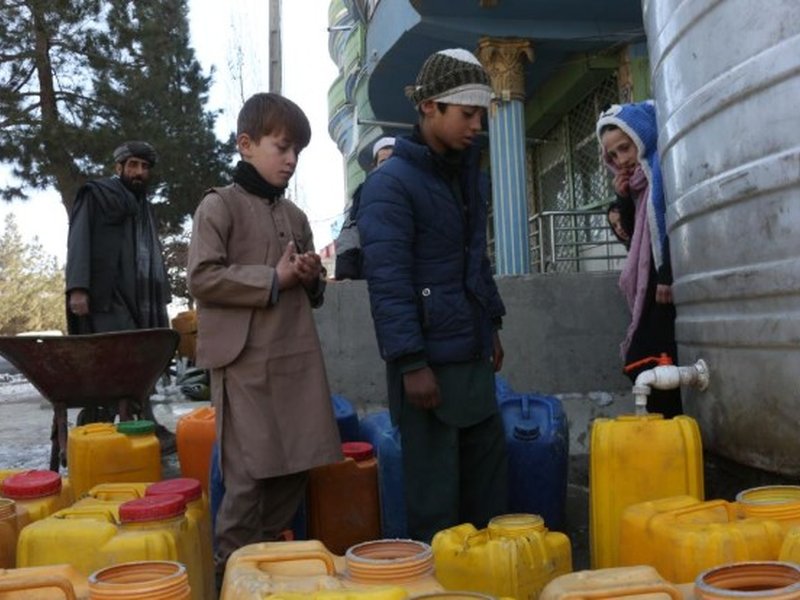
Kabul: Kabul is currently experiencing one of its most severe water crises in history, adversely impacting millions of residents. Local reports indicate a sharp decline in water levels, especially in the central and western regions of the city, creating critical shortages.
Residents expressed their distress, with one saying, “Water is essential for life. Without it, people will suffer from hunger and thirst,” while another mentioned, “Children and women are wandering day and night with buckets, but there is no water.” The people of Kabul are calling on the Taliban-led interim government to expand water supply systems and deepen wells to alleviate the crisis.
The United Nations Human Settlement Programme (UN-Habitat) has described the situation as “unprecedented,” highlighting that nearly six million people are at risk due to the rapid depletion of water resources. They emphasized the need for large-scale investments, effective collaboration, and increased public awareness about water conservation and management, urging immediate action.
A recent report by NGO Mercy Corps revealed that some households devote up to 30 percent of their income to water expenses, with over two-thirds incurring debt related to water access. It warned that groundwater extraction far exceeds natural replenishment, with nearly half of the city’s boreholes already dry. Without urgent intervention, Kabul could become the first modern capital to run out of water.
Alarmingly, about 80 percent of groundwater is contaminated with high levels of sewage, arsenic, and salinity, posing serious health risks. Earlier UN-Habitat assessments indicated that 21 million people nationwide require urgent water, sanitation, and health support. Stephanie Loose, head of UN-Habitat in Afghanistan, stressed the need for enormous investments in water infrastructure to prevent water scarcity that has also impacted other major cities like Kandahar and Herat, as groundwater depletion continues to threaten the country’s future.
